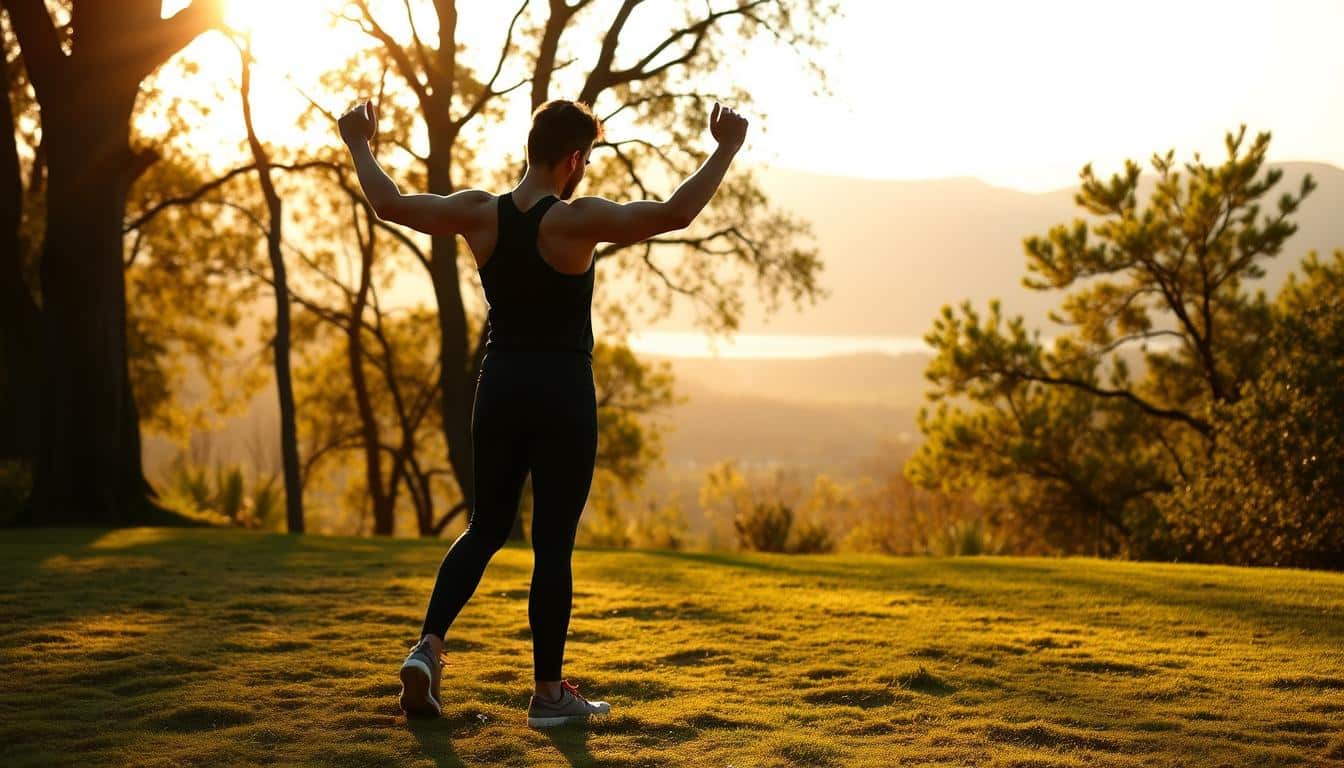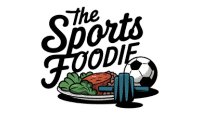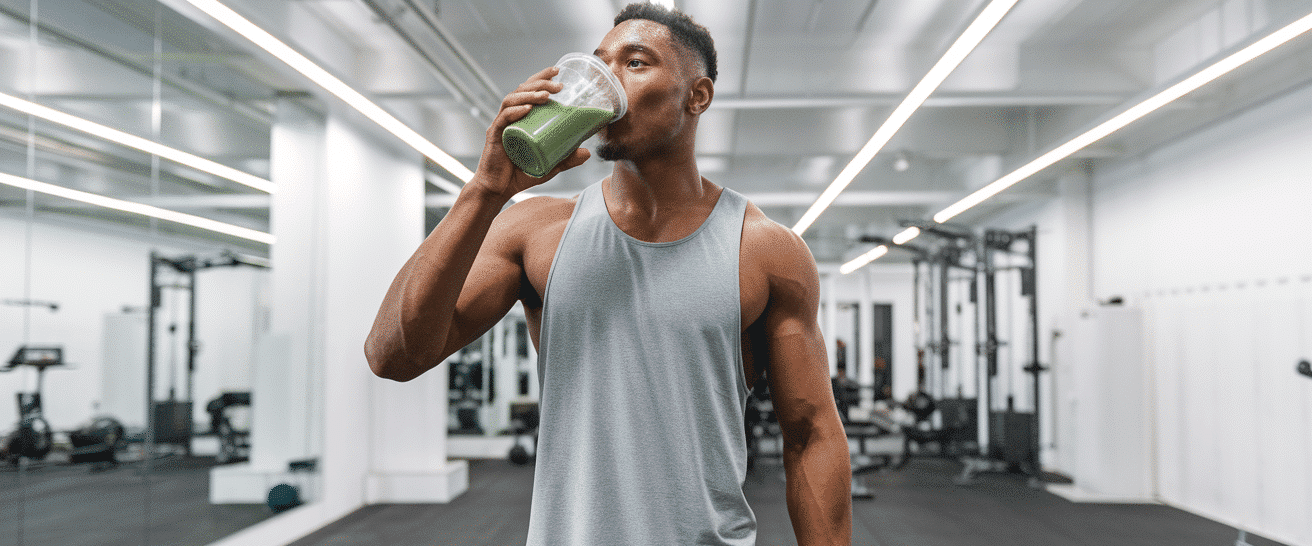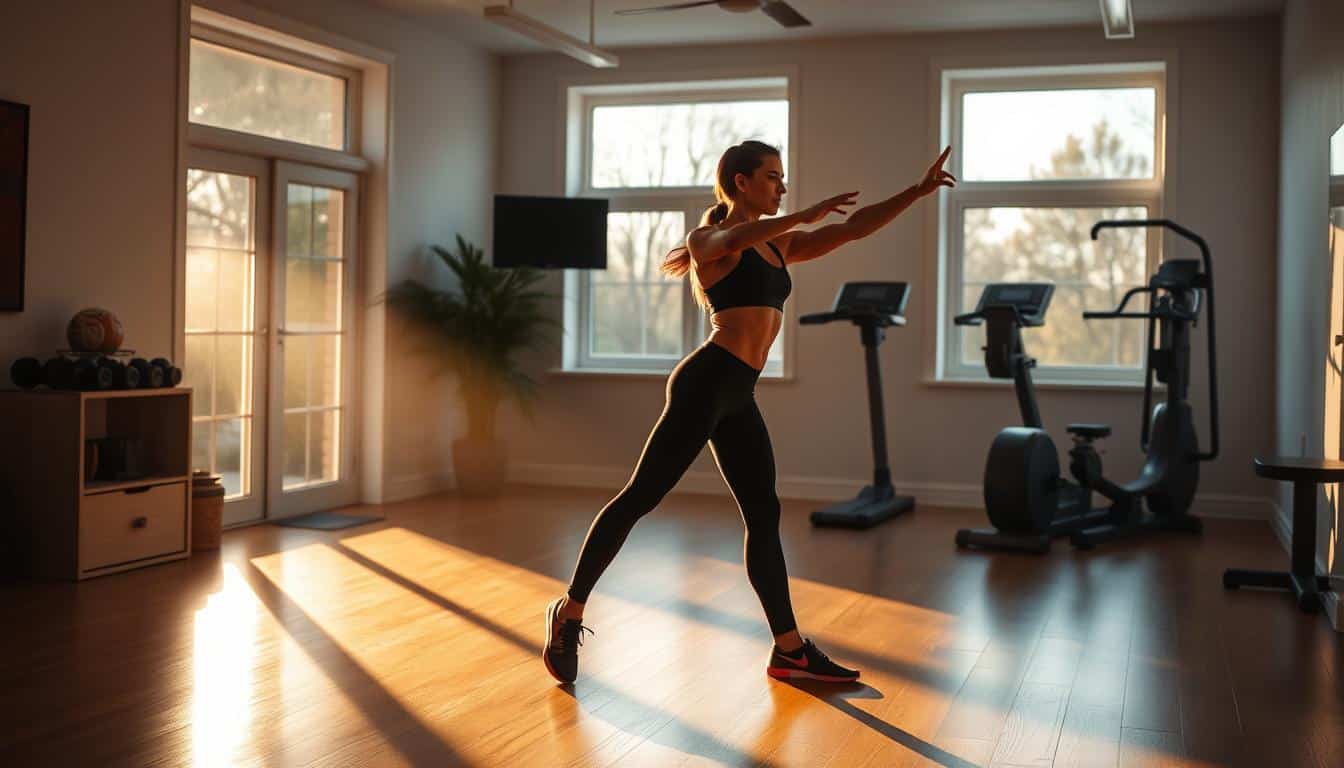Starting your day with a morning workout can feel amazing, but it often raises a big question: Do you need to eat first? After hours of sleep, your body might feel low on energy, leaving you unsure about the best way to fuel up.
Some people swear by fasted exercise, claiming it helps burn fat. Others prefer a small snack to power through their session. The truth? It depends on your goals, intensity, and how your body responds. Short workouts might not require food, but longer or high-intensity sessions could benefit from a quick bite.
Ready to find what works for you? Let’s dive into the details and help you make the best choice for your workout routine.
Introduction: Should I Eat Before a Morning Workout?
Fueling up for your early exercise session can make a big difference. After hours of sleep, your blood sugar levels might drop, leaving you feeling sluggish. For shorter workouts, like a 30-minute jog, your body can rely on stored glycogen. But for longer or high-intensity sessions, a quick snack can provide the energy you need to power through.
Studies show that 68% of gym-goers perform better with a pre-exercise snack. On the other hand, fasted workouts may help burn up to 20% more fat. It’s all about finding what works for your body and goals.

For example, marathon runner Sarah swears by a banana with peanut butter before long runs. It’s a simple, effective way to fuel her body. If you’re unsure, keep emergency snack packets in your gym bag for a quick boost.
Here’s a quick comparison of fuel needs for different workouts:
| Workout Type | Duration | Fuel Recommendation |
|---|---|---|
| Jogging | 30 minutes | Optional snack |
| Cycling Class | 90 minutes | Light breakfast or snack |
| Strength Training | 45 minutes | Small meal or snack |
Whether you’re hitting the gym or heading out for a run, the right breakfast can set you up for success. Experiment with different options to see what keeps your energy steady and your performance strong.
Factors to Consider Before Eating
Understanding your body’s needs can make or break your session. Everyone’s requirements differ based on their goals, lifestyle, and physical condition. Let’s explore the key factors to help you decide what works best for you.

Your Workout Intensity and Duration
The intensity and length of your exercise play a big role in whether you need fuel. High-intensity interval training (HIIT) burns 30% more carbs than steady-state cardio. For shorter sessions, your body can rely on stored energy. Longer workouts, however, often benefit from a small snack or meal.
Your Health and Medical Conditions
Your health is another critical factor. For example, Type 1 diabetics require 15g of carbs pre-exercise to prevent low blood sugar. Similarly, eating fiber-rich foods less than one hour before exercise can cause stomach discomfort. Always consider your unique needs.
Your Personal Preferences
Some people thrive on fasted workouts, while others need a quick bite. Morning yoga practitioners often prefer skipping food, whereas CrossFit athletes like Mike schedule meals two hours before training. Use a fitness tracker to monitor how your body responds to different approaches.
| Factor | Recommendation |
|---|---|
| High-Intensity Workouts | Eat a small snack 30-60 minutes prior |
| Health Conditions | Consult a doctor for personalized advice |
| Personal Preference | Experiment to find what feels best |
Benefits of Eating Before a Morning Workout
Fueling your body right can transform your workout results. Eating a balanced snack before exercise provides the energy and nutrients needed to perform at your best. Studies show that combining carbs and protein boosts endurance by 25%. This makes your session more effective and enjoyable.
For example, oatmeal with berries is a great option. It’s packed with slow-releasing carbs and antioxidants. This combo keeps your energy steady and supports muscle recovery. Even small changes in your pre-workout routine can lead to big improvements.
Here’s how proper fueling can help:
- Eating 75g of carbs before a marathon improves performance by 12%.
- Greek yogurt with granola increases squat max by 5lbs compared to fasting.
- Chocolate milk is an affordable post-workout drink for recovery.
Triathlete Jen cut her 5K time by 1:30 with the right pre-exercise foods. Her secret? A simple snack of banana and almond butter. This small change made a big difference in her results.
Looking for budget-friendly options? Bulk-buy oats and frozen berries. These cost-effective choices provide the nutrients you need without breaking the bank.
| Snack | Benefits |
|---|---|
| Oatmeal + Berries | Steady energy, supports muscle repair |
| Greek Yogurt + Granola | Boosts strength, easy to digest |
| Chocolate Milk | Affordable, aids recovery |
Experiment with different snacks to find what works best for you. The right fuel can elevate your performance and help you achieve your fitness goals.
When to Skip Eating Before a Workout
Not every workout requires a pre-exercise meal. For low intensity activities like walking or yoga, your body can perform well on an empty stomach. These sessions often don’t demand extra fuel, making fasting a viable option.
Fasted workouts, like 20-minute mobility drills, can be effective. Participants in hot yoga report 40% less nausea when skipping food beforehand. This approach works best for shorter, less intense sessions.
Research shows no significant difference in fat loss between fasted and fed cardio groups over 12 weeks. While fasted exercise may burn more fat during the session, long-term results remain similar. Always listen to your body—dizziness is a sign to consume carbs immediately.
Here’s a quick hack: Swish a sports drink in your mouth without swallowing. This trick can create an energy placebo effect, helping you push through without consuming calories.
For more ideas on fueling your body, check out these high-energy breakfast foods.
| Activity | Duration | Recommendation |
|---|---|---|
| Walking | 30 minutes | Optional snack |
| Yoga | 60 minutes | Fasted or light hydration |
| Mobility Drills | 20 minutes | Fasted |
Experiment with skipping food for low intensity workouts and see how your body responds. The right approach can enhance your performance and comfort.
Best Foods to Eat Before a Morning Workout
Choosing the right pre-workout meal can make your session more effective. The foods you consume provide the energy and nutrients your body needs to perform at its best. Whether you’re into cardio, strength training, or aiming for weight loss, the right snack can make all the difference.
For Cardio Workouts
Cardio exercises like running or cycling require quick energy. Focus on carbs that are easy to digest. A combination of one medjool date and a tablespoon of almond butter provides a 100-calorie boost. Smoothies with fruits and a scoop of protein powder are another great option. Avoid high-fiber foods that might cause discomfort during your session.
For Strength Training
Strength training demands a mix of carbs and protein to fuel your muscles and aid recovery. Three egg whites paired with half a cup of oatmeal offers 18g of protein. Toast with almond butter is another simple yet effective choice. These meals provide sustained energy and support muscle repair.
For Weight Loss Goals
If weight loss is your focus, balance is key. Apple slices with one ounce of cheddar cheese combine carbs and protein to keep you full and energized. Homemade energy balls are a cost-effective alternative to store-bought bars. Prep breakfast burritos weekly for grab-and-go convenience.
| Workout Type | Recommended Snack | Benefits |
|---|---|---|
| Cardio | Medjool date + almond butter | Quick energy, easy to digest |
| Strength Training | Egg whites + oatmeal | Supports muscle repair |
| Weight Loss | Apple slices + cheddar | Balanced carbs and protein |
Experiment with these options to find what works best for you. The right snack can elevate your performance and help you achieve your fitness goals.
Hydration Tips for Morning Workouts
Hydration plays a key role in maximizing your performance. Drinking 16-24oz of water 1-2 hours before your session ensures your body is ready to go. For workouts lasting over 60 minutes, consider adding electrolytes to your routine. They help maintain energy and prevent fatigue.
Need a quick electrolyte boost? Add a pinch of salt to your water for a homemade drink. Coconut water is another great option, offering 15x more potassium than sports drinks. Just be cautious—overhydration can dilute sodium levels, leading to serious health risks.
Pro athletes swear by sipping 4oz of fluids every 15 minutes during long sessions. This keeps their stomach comfortable and energy levels steady. To track your hydration, use free apps that analyze urine color. Aim for a pale yellow shade throughout the day.
| Hydration Tip | Benefit |
|---|---|
| Drink 16-24oz water 1-2 hours pre-workout | Prepares body for exercise |
| Add pinch of salt to water | Homemade electrolyte drink |
| Sip 4oz every 15 minutes | Keeps energy steady |
For more insights on how nutrition impacts performance, check out this ultimate guide. Stay hydrated, and your body will thank you!
Conclusion
Finding the right fueling strategy for your routine can elevate your performance. Experimentation is key—try fasted, small snack, and full breakfast options over three days to see what works best for your body. For example, Mike improved his bench press by 20lbs after switching to a proper pre-exercise meal.
Keep a journal to track your energy levels on a 1-10 scale after each session. Apps like MyFitnessPal, WaterLlama, and TrainingPeaks can help monitor your progress. These tools make it easier to identify patterns and optimize your routine.
Your health and fitness goals are unique, so tailor your approach accordingly. For personalized advice, consult a NASM-certified nutritionist. With the right plan, you can make the most of your day and achieve your goals.


